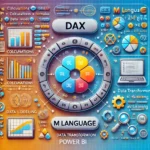Arch Linux vs. Ubuntu: Choosing the Right Linux Distribution
Linux is renowned for its flexibility and customization options, and it offers a multitude of distributions to cater to different user preferences. Among the plethora of choices, Arch Linux and Ubuntu stand out as two popular options, each with its own unique strengths and characteristics. In this blog post, we’ll compare these two distributions to help you decide which one is the best fit for your needs. To make the decision-making process easier, we’ve also included a comparison table.
Arch Linux
1. Rolling Release Model
- Arch Linux follows a rolling release model, which means it provides the latest software updates as soon as they are available. This ensures you have access to cutting-edge software and security updates without the need to perform major version upgrades.
2. DIY Philosophy
- Arch Linux is known for its “Do It Yourself” (DIY) philosophy. During installation, you start with a minimal system and build it up according to your preferences. This level of customization allows you to create a system that is tailored precisely to your needs.
3. Up-to-Date Software
- Arch’s rolling release model keeps all software packages up to date, ensuring you have the latest features and security patches.
4. Active Community
- Arch has a passionate and active community that provides extensive documentation, forums, and a wealth of resources to help users troubleshoot issues and customize their systems.
5. Lightweight
- Arch Linux is known for its minimalistic and lightweight design, making it a great choice for users who want a fast and efficient system without unnecessary bloat.
Ubuntu
1. Stable Release Model
- Ubuntu follows a fixed release model, with new versions every six months and Long-Term Support (LTS) releases every two years. This stability is suitable for users who prefer a well-tested and reliable system.
2. User-Friendly
- Ubuntu is often praised for its user-friendly approach. It provides a straightforward installation process and an intuitive desktop environment (usually GNOME) out of the box, making it an excellent choice for beginners.
3. Large Software Repository
- Ubuntu boasts a vast software repository with thousands of applications available, making it easy to find and install software for various purposes.
4. Enterprise Focus
- Ubuntu offers LTS releases with extended support, making it an excellent choice for servers and enterprise environments that require long-term stability and security updates.
5. Active Community and Commercial Support
- Ubuntu has a strong community and is backed by Canonical, a company that provides commercial support options for businesses and organizations.
https://synapsefabric.com/2023/09/01/spss-vs-graphpad-choosing-the-right-data-analysis-tool/
Comparison Table
| Aspect | Arch Linux | Ubuntu |
|---|---|---|
| Release Model | Rolling Release | Fixed Release (LTS available) |
| Installation Complexity | Advanced | Beginner-friendly |
| Customization | Highly customizable | Less customization, more out-of-the-box |
| Software Availability | Vast software availability | Extensive software repository |
| Stability | Frequent updates, potential breakage | Stable releases (LTS for long-term use) |
| Community Support | Active community, DIY approach | Active community, commercial support |
| System Resources | Lightweight | Moderate resource usage |
| Ideal For | Experienced users, enthusiasts | Beginners, desktop users, enterprises |
The choice between Arch Linux and Ubuntu ultimately depends on your specific needs and preferences. If you’re an experienced user who values customization, the latest software, and doesn’t mind occasional troubleshooting, Arch Linux could be the perfect fit. On the other hand, if you’re a beginner looking for a stable and user-friendly experience or you need a dependable server operating system, Ubuntu might be the better choice. Consider your priorities and goals when selecting between these two excellent Linux distributions, and you’ll be on your way to an enjoyable open-source computing experience.






